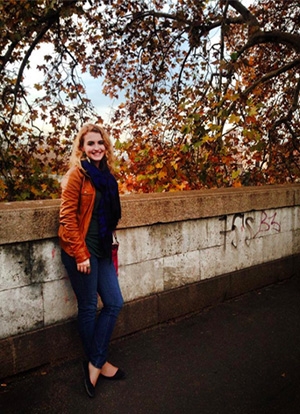Two Union students will travel the world next year, funded by the prestigious Thomas J. Watson Fellowship Program.
Seniors Karlee Bergendorff and Warren Thompson were among the 50
students selected as fellows from more than 700 candidates nominated by private liberal arts colleges and universities in the United States.
This marks the third straight year that the College has two Watson fellows. The program was established in 1968 by the children of Thomas J. Watson, Sr., the founder of IBM, and his wife, Jeanette K. Watson, to honor their parents’ longstanding interest in education and world affairs.
This year’s fellows receive a $30,000 stipend to cover a year of independent study and travel outside the U.S. They’ll traverse 78 countries exploring topics ranging from artificial reef communities to criminal justice from cross-cultural comedy to global cinema; from childhood education to smart grids.
To learn more about this year’s Watson Fellows and their projects, click here.
KARLEE BERGENDORFF
Hometown: Catskill, N.Y.
Major: Political Science with a dual concentration in Art History and Fine Arts
Project title: “The Dirty Archeology of Alternative History”
Countries: Argentina, Germany, India, Cambodia and South Africa
Description: Textbook versions of history often focus on “greatness” and monumental events, where I take the shreds of history, pieces of junk and abandoned spaces, and piece together untold stories through my art. I hope to rediscover a history that fills in the gaps of traditional, historical narratives. I will search for meaning in material remains and create reflective art in each location based on what I discover.
WARREN THOMPSON
Hometown: Boston, Mass.
Major: Biochemistry and Music
Project title: "Flute Music Across the World: Exploring Expression, Ritual, and Healing"
Countries: Japan, Australia, India and Peru
Description: Flute music is used in cultures around the world for important rituals, for expressing traditional stories, and for healing. In all of these traditions, the musicians use the flute for deep emotional expression in such meaningful pursuits. I will learn the elements of four flute styles from musicians who have grown up with the music. Playing music in clinics, hospitals, and other places of healing will allow me to explore what the music means to people in each culture, musicians and non-musicians, and discover how much I can use music to reach vulnerable patients, learn more about listeners in general, and help them heal.
